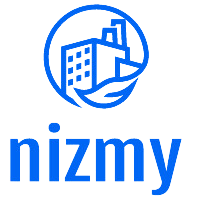The rise of blockchain technology has revolutionized many industries, and the business world is no exception. With the increasing demand for transparency, security, and efficiency in modern businesses, there is a growing need for advanced solutions that can meet these requirements. One such solution is Hyperledger technology, a permissioned blockchain platform that offers a range of benefits for businesses of all sizes. In this article, we will explore the potential that Hyperledger technology holds for modern business applications.
Overview of Hyperledger Technology
Hyperledger technology is an open-source project managed by the Linux Foundation. It provides a framework for developing enterprise-grade distributed ledger systems, making it ideal for businesses looking to incorporate blockchain into their operations. The platform is aimed at addressing the challenges faced by traditional blockchain networks, such as scalability, speed, and privacy, making it a popular choice for organizations across various industries.
What is Hyperledger?
Hyperledger is not a single technology but a collection of tools, libraries, and frameworks that work together to create a robust, private, and secure distributed ledger system. It includes various projects, such as Hyperledger Fabric, Sawtooth, Iroha, Indy, and Burrow, each designed for specific purposes. These projects provide developers with a modular and flexible platform for creating customized blockchain solutions for their business needs.
How Does Hyperledger Differ from Other Blockchain Platforms?
Unlike public blockchains like Bitcoin and Ethereum, Hyperledger is a permissioned blockchain. This means that access to the network is restricted to authorized participants only, making it suitable for enterprise use. Additionally, it uses a consensus mechanism that allows for faster transaction processing, making it more efficient compared to other public blockchains. Moreover, Hyperledger offers a range of features that cater to the needs of businesses, such as privacy, scalability, and flexibility.
Key Features of Hyperledger Technology
Privacy
Hyperledger technology offers advanced privacy features that enable businesses to control the type of data they want to share with others on the network. This is especially important for companies that handle sensitive data and need to comply with strict privacy regulations.
Flexibility
Hyperledger technology provides a flexible platform that allows developers to create customized blockchain solutions according to their business needs. This ensures that the technology can be tailored to fit the specific requirements of different industries and use cases.
Scalability
One of the limitations of traditional blockchain networks is their scalability. Hyperledger addresses this issue by using a modular architecture that allows for easy scaling as the network grows. This makes it suitable for enterprise use, where large volumes of data need to be processed quickly and efficiently.
Applications of Hyperledger Technology in Modern Businesses

Hyperledger technology has a wide range of applications in various industries, from supply chain management and finance to healthcare and government. Let’s take a look at some of the potential uses of this technology in modern businesses.
Supply Chain Management
The supply chain industry is one of the biggest adopters of blockchain technology, and Hyperledger is no exception. With its immutable ledger and advanced tracking capabilities, Hyperledger can help improve the transparency and traceability of goods and services throughout the supply chain. This can help reduce fraud, counterfeiting, and other supply chain inefficiencies, ultimately leading to cost savings for businesses.
Finance and Banking
In the finance and banking sector, Hyperledger technology can be used in a variety of ways, such as streamlining international payments, managing trade finance, and creating smart contracts for financial agreements. Due to its permissioned nature, Hyperledger is ideal for banks and financial institutions, where privacy and security are paramount.
Healthcare
The healthcare industry has a lot to gain from implementing Hyperledger technology. It can help improve patient data management, secure medical records, and enable efficient sharing of information among healthcare providers. Additionally, Hyperledger’s privacy features make it suitable for complying with strict healthcare regulations, such as HIPAA.
Government Services
Governments are also starting to explore the potential of Hyperledger technology in various services, including identity verification, voting systems, and land registry. By using a secure and transparent platform like Hyperledger, governments can ensure the integrity and accuracy of their public records.
How to Use Hyperledger Technology in Modern Businesses?

Integrating Hyperledger technology into your business operations requires careful planning and consideration. Here are some key steps you can follow to effectively use this technology in your organization:
- Identify the problem or inefficiency that you want to solve by implementing Hyperledger technology.
- Determine which Hyperledger project best suits your needs. For example, if you need to track goods and services throughout the supply chain, Hyperledger Fabric may be the right choice.
- Assemble a team of experienced developers who have the necessary skills and knowledge to work with Hyperledger technology.
- Develop a proof-of-concept to test the viability of your solution before implementing it on a larger scale.
- Implement the solution and continuously monitor and improve its performance.
Examples of Hyperledger Technology in Modern Businesses
Many organizations across different industries have already started experimenting with Hyperledger technology. Let’s take a look at a few examples of how companies are using this technology in their operations:
- Walmart: The retail giant is exploring the potential of Hyperledger Fabric to track food products and ensure their safety and authenticity.
- BHP Billiton: The mining company uses Hyperledger to keep records of its mineral samples and ensure their provenance and quality.
- Union Bank of Switzerland (UBS): UBS is leveraging Hyperledger technology to streamline its trade finance processes and reduce operational costs.
- Beijing Internet Court: The Chinese court uses Hyperledger to store and manage court rulings, ensuring that they cannot be altered or manipulated.
Comparison of Hyperledger Technology with Other Blockchain Platforms
While there are many blockchain platforms available in the market, Hyperledger stands out due to its unique features and capabilities. Here are some key differences between Hyperledger and other popular blockchain platforms:
- Ethereum: Unlike Ethereum, which is a public blockchain, Hyperledger is a permissioned blockchain, making it more suitable for enterprise use.
- EOS: Similar to Ethereum, EOS is also a public blockchain platform, whereas Hyperledger is a private blockchain. This means that Hyperledger offers higher levels of privacy and security compared to EOS.
- Ripple: While Ripple is primarily focused on providing a global payments network, Hyperledger offers a broad range of applications and use cases, making it a more versatile platform.
Advice for Businesses Exploring the Potential of Hyperledger Technology
As with any emerging technology, businesses need to plan carefully before incorporating Hyperledger into their operations. Here are a few tips for companies looking to explore this technology:
- Make sure to thoroughly understand your business needs and how Hyperledger technology can help address them.
- Work with experienced developers who have a deep understanding of Hyperledger and its various projects.
- Start small and test your solution before implementing it on a larger scale.
- Keep up-to-date with new developments and updates in the Hyperledger community to ensure the continued success of your solution.
- Collaborate with other organizations using Hyperledger technology to stay ahead of the curve and learn from each other’s experiences.
Frequently Asked Questions about Hyperledger Technology
Q: Is Hyperledger technology secure?
A: Yes, Hyperledger technology offers advanced security features, such as permissioned access, advanced encryption, and consensus mechanisms, making it a secure platform for businesses.
Q: Can I customize my Hyperledger solution?
A: Yes, Hyperledger technology provides a flexible framework that allows for customizations to fit the specific needs of different businesses and industries.
Q: Can I integrate Hyperledger with my existing systems?
A: Yes, Hyperledger can be integrated with existing systems using APIs, making it easier to incorporate into your business operations.
Q: Do I need technical expertise to use Hyperledger?
A: While some technical expertise is necessary to develop and maintain a Hyperledger solution, there are many resources available that can help guide businesses through the process.
Q: Is Hyperledger technology suitable for all types of businesses?
A: Yes, Hyperledger technology can be used by businesses of all sizes, from small startups to large corporations, and across various industries.
Conclusion
Hyperledger technology offers a range of benefits for modern businesses, from improved privacy and security to scalability and flexibility. As organizations continue to explore the potential of this technology, we can expect to see even more innovative use cases in the future. By understanding how to effectively use and implement Hyperledger technology, businesses can stay ahead of the curve and gain a competitive advantage in their respective industries.

